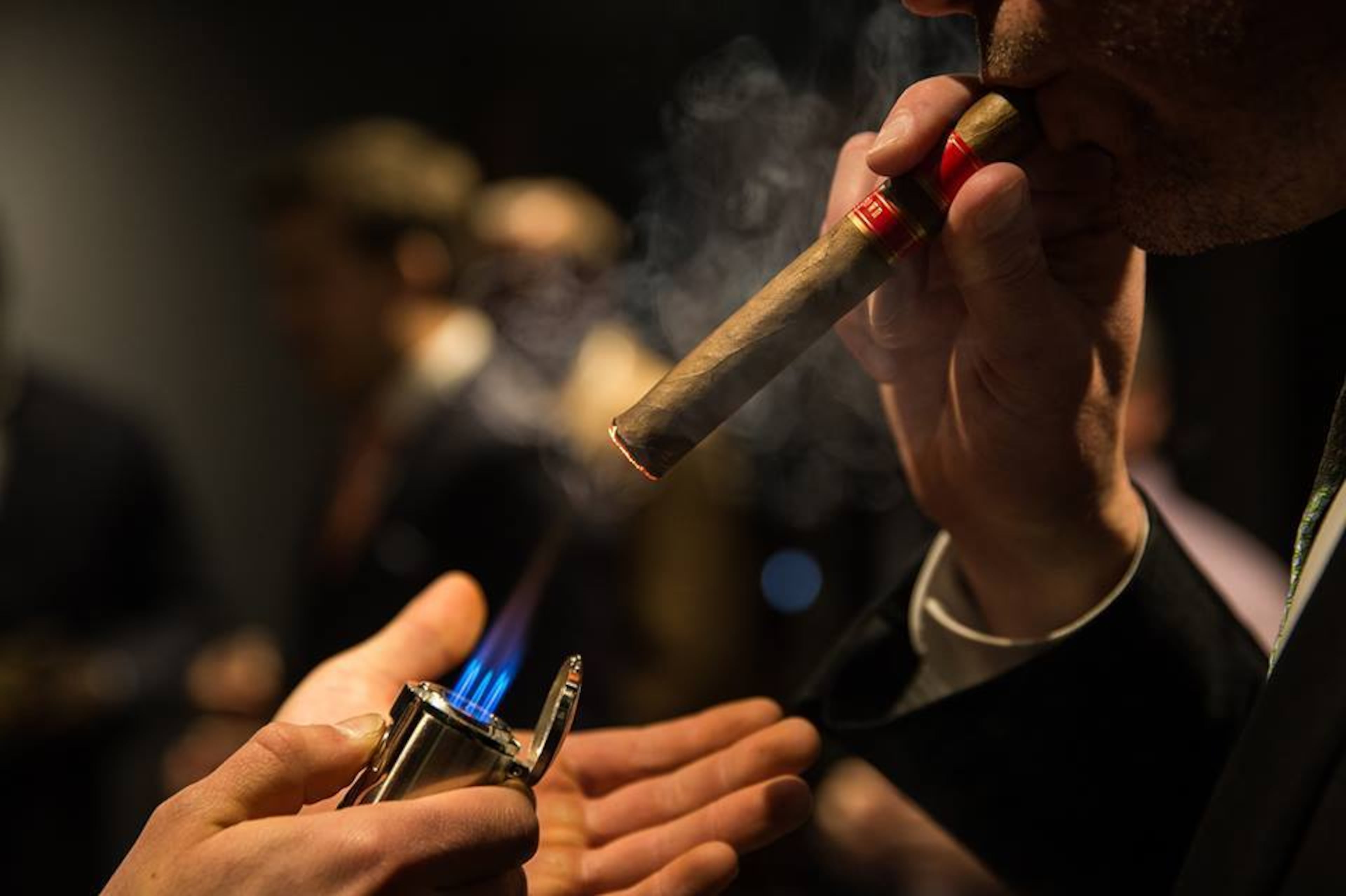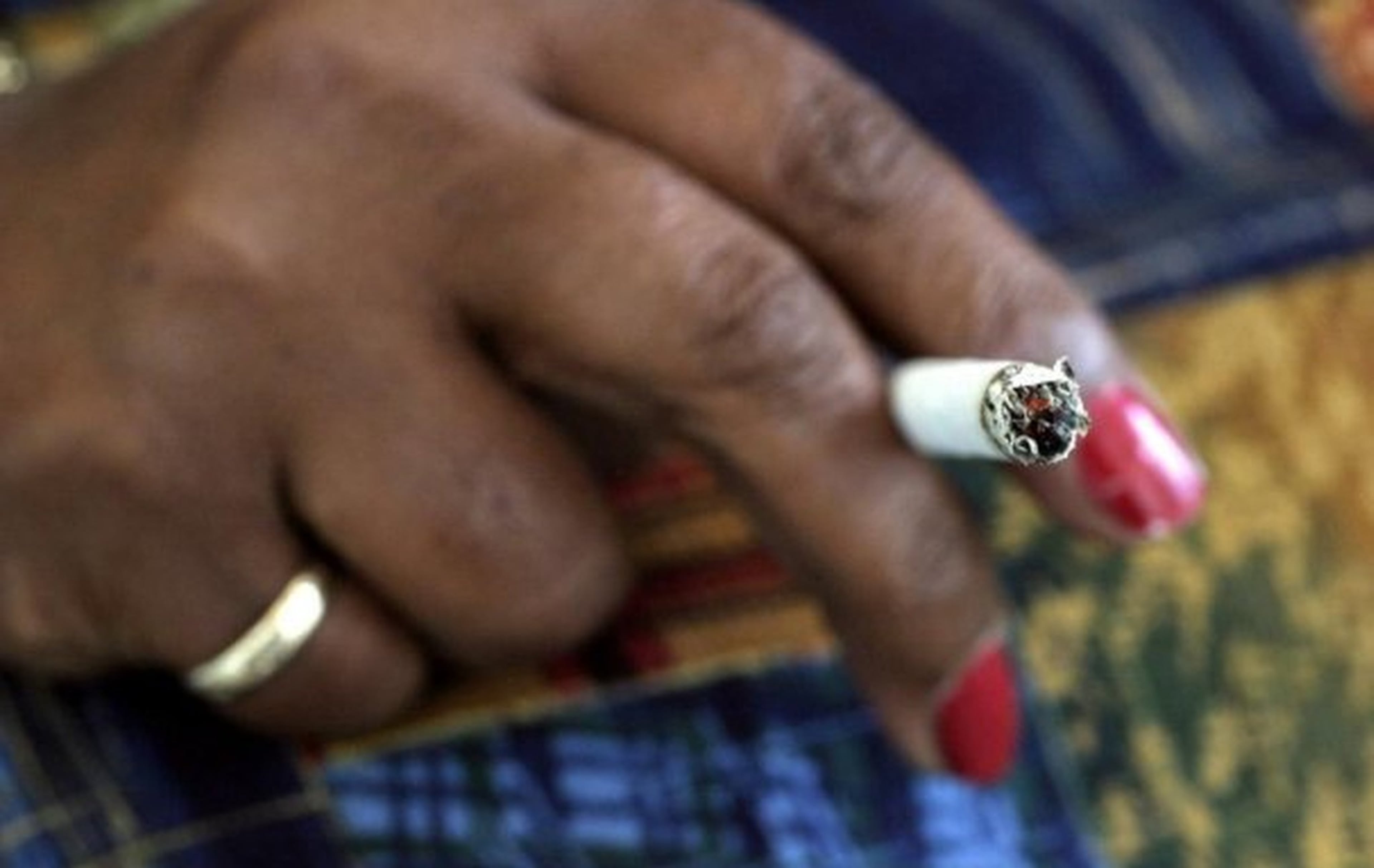Atlanta City Council discusses proposed ban on smoking, vaping

Owners of cigar bars and vape shops spoke out Wednesday against a proposed Atlanta smoking ban arguing it could harm their businesses and that vaping is not the same as smoking.
They were among the dozens who attended a city council work session on the sweeping ordinance, which would make it illegal to light up indoors in many public places including restaurants, bars, hotels, offices and the world's busiest airport.
Atlanta last moved to restrict smoking in 2012 when it banned it in the city’s parks.
Anti-smoking advocates told council members the new measure is needed to safeguard public health, saying second-hand smoke can lead to heart attacks and other health problems.
“Second-hand smoke is lethal,” said American Cancer Society chief medical officer Len Lichtenfeld. “It is not an incidental problem not to be concerned about.”
City council member Matt Westmoreland, who introduced the legislation, said it is “centered around the premise that it is good public policy to allow everyone to breathe smoke-free air in the city of Atlanta.”

“I believe our city needs to join every other major American city in having this piece of public health legislation on our books,” Westmoreland said.
A Georgia "smoke-free" law passed in 2005 allowed restaurants and bars like Northside Tavern to permit smoking if people under 18 are prohibited or if smoking areas are in enclosed private rooms with independent air-flow systems or outdoors.
But the city's proposed ordinance would go further — making all restaurants and bars in the city of Atlanta smoke-free indoors and eliminating smoking lounges at Hartsfield-Jackson International Airport.
Georgia Restaurant Association CEO Karen Bremer told council members she thinks the city should keep exceptions in state law for certain restaurants and bars to allow smoking, and said an Atlanta ordinance “would create an unfair economic advantage” for restaurants that allow smoking in jurisdictions outside of Atlanta.
“Let’s keep [the exceptions] in place to satisfy those consumers that choose to frequent an establishment that allows them to enjoy a cigar or a cigarette,” Bremer said. “In the United States, the sale and use of tobacco products is still legal, last time I checked.” She said people choose to patronize or work at restaurants and bars that allow smoking, and children are already prohibited in those that do.
A key element of the proposed city measure is that it would redefine smoking to include e-cigarettes or vaping.
“E-cigarette smoke is detrimental to the lungs of people with asthma, growing children and adults as well,” said Stanley Fineman, past president of the American College of Allergy, Asthma & Immunology.
Lisa Gano, who owns VapeRite vape shops in Georgia, said she supports excluding vape shops from the ban. But, she added, “When you continue to group smoking and vaping together, it makes it harder for adults to find an alternative that may work for them.”
The legislation includes an exemption for cigar bars and hookah lounges that meet a threshold of 30 percent tobacco sales, but some have said that threshold would be difficult to meet for some cigar bars.
Hal Nowak runs Hal’s “The Steakhouse” in Buckhead, which allows smoking in a downstairs bar, and voiced concern about losing business from cigar smokers.

“More and more businessmen are smoking cigars, before and after dinner. It’s pretty evident [with] the cigar bars opening all over,” Nowak told council members. “The businessmen are a big, important part of my business and I would like to keep them… Please don’t give our neighboring municipalities an advantage in the restaurant-bar business over us.”
After comments from cigar bar proponents, city councilman Andre Dickens indicated he would be open to considering a proposal for a change to the legislation to more easily allow legitimate cigar bars to operate.
If the legislation is passed by committees and the full council, the ordinance as currently written would take effect Sept. 1, 2019.
Employers and facilities that violate the provisions could be punished with fines of up to $100 for a first violation and up to $200 for each additional violation in a year, according to the proposed measure.
The Atlanta airport has smoking lounges on its concourses, but in anticipation of a city smoking ban, airport officials have been planning to convert those areas to other uses.

Hartsfield-Jackson general manager John Selden said the airport has outdoor smoking areas just outside the domestic and international terminals for workers and passengers. But connecting passengers on the concourses would not have places to smoke if indoor smoking is banned at the airport.
A CDC report in 2017 showed that Los Angeles International, Chicago O'Hare, Beijing Capital International, London Heathrow, Shanghai Pudong and Dallas/Fort Worth are among the largest airports in the world with indoor smoke-free policies.
Among the U.S. airports that still allow smoking indoors in designated areas are Hartsfield-Jackson, Las Vegas McCarran, Miami International, Washington Dulles and Nashville.
Westmoreland said he does not expect city council committees to take any action on the measure until June, as city council members discuss the comments from the public.
Proposed Atlanta smoking ban
As currently written, the proposed Smoke-Free ATL ordinance being weighed by the Atlanta City Council includes a broad definition of public places where smoking and vaping would be prohibited — including any enclosed public area at the world’s busiest airport, in restaurants, bars, hotels, motels, stores, offices, public transit, restrooms and parking structures. It would also prohibit smoking within five feet of those buildings’ entrances, windows and ventilation systems.
The city’s measure as written would prohibit smoking and vaping in enclosed places of employment. And a ban on smoking in parks would be expanded to also ban vaping.
The smoking ban would not apply to private vehicles or to homes, unless a private residence is used as a childcare or healthcare facility.



